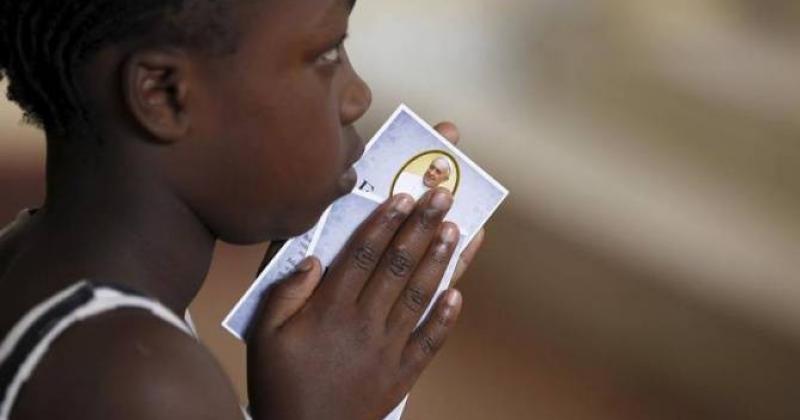The Pope's African trip to start on Wednesday, November 25,, will take him to Kenya, Uganda and the Central African Republic. His visit is to centre around dialogue between faiths, reconciliation, the fight against poverty and exclusion
The Pope's presence and gestures go hand in hand with his verbal message. But his physical presence in Kenya, Uganda and the Central African Republic during his visit to Africa which begins tomorrow and ends Monday, is far more important than the words he will pronounce.
The first stop is in the country where some of the bloodiest jihadist attacks of recent years were carried out by Al-Shabab, the radical wing of the now-defunct Union of Islamic Court: at Westgate Mall in September 2013 (71 died and 175 were injured), at Garissa University College last April (148 died and 79 were injured) and in Mandera last July (14 died and 11 were injured).
In a land where violence and terrorism are fuelled by poverty and desperation but also extremist indoctrination, Francis will remind people that invoking the name of God to justify killings and massacres is blasphemy. A significant moment of his trip to Kenya will be his speech to the UN general headquarters in Africa, ahead of the COP21climate change conference in Paris. The Pope dedicated an encyclical to environmental issues last June, showing that efforts to curb pollution cannot be detached from the fight against poverty and the questioning of the current development model.
The second leg of Francis’ trip, Uganda, will focus on the 50th anniversary of the canonization of the Namugongo martyrs as well as on themes such as social exclusion and the full participation of all in society. The country’s ample natural resources, such as the oil reserves is Lake Albert, do not translate into shared wealth for everyone but widen the gap between the rich and the rest of the population.
The third and most delicate leg of the Pope’s African voyage is the Central African Republic, which was only confirmed at the last minute due to the instability and precarious security situation in the capital Bangui, where clashes that were apparently religiously motivated but were in fact also triggered by other factors, have continued in recent days. There was talk of a warning being sent by French services about the risk of attacks but Fr. Federico Lombardi assures that “we have not received any new information that poses cause for concern”. The person in charge of the Pope’s security, the chief of the Vatican Gendarmerie, Domenico Giani has been in Bangui since Friday. The arrival of 300 Senegalese UN peacekeepers – who will stay in the country throughout the presidential elections which are due to take place next month – should guarantee calm during the Pope’s visit.
Francis cares especially about the inauguration of the Jubilee of Mercy in Bangui Cathedral ahead of the official inauguration in the Vatican. The Pope will be opening the Holy Door of the diocese of Bangui more than a week before he is due to open the Holy Door of St. Peter’s Basilica. This is a first. The Pope’s visit to the mosque in the Central African capital – if the schedule goes a s planned – will be of particular significance. Francis will also have a chance to get close to the poor by visiting, for example, Nairobi’s Kangemi neighbourhood and the House of Charity of Nalukolongo, in Uganda.
After the sinister events witnessed in Paris, the Brussels security lockdown and the fears of attacks taking place on our very doorstep, give even greater significance to the Pope’s pilgrimage. Even in Africa, he will be getting around in an open Popemobile, refusing to bow down to fear.
